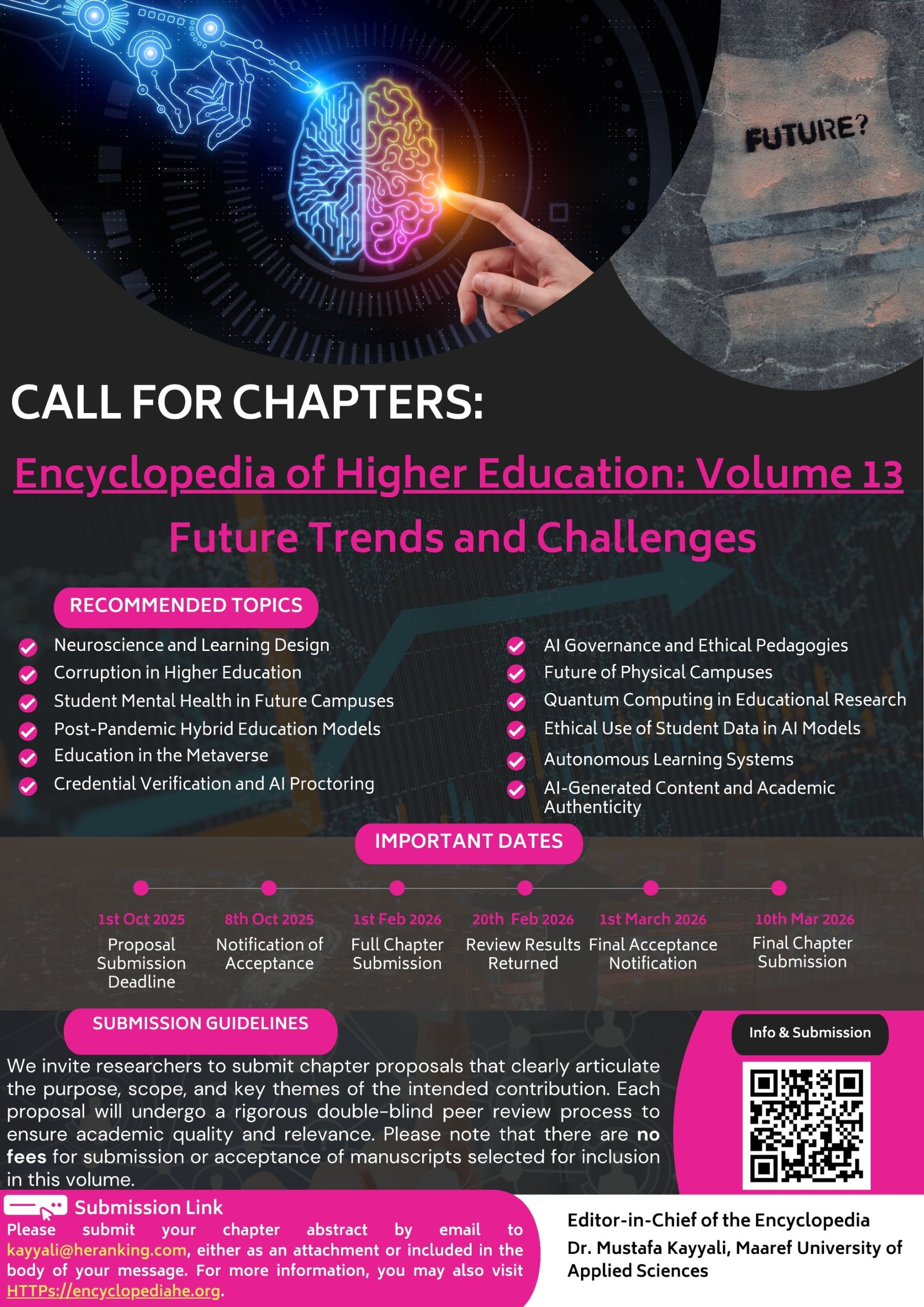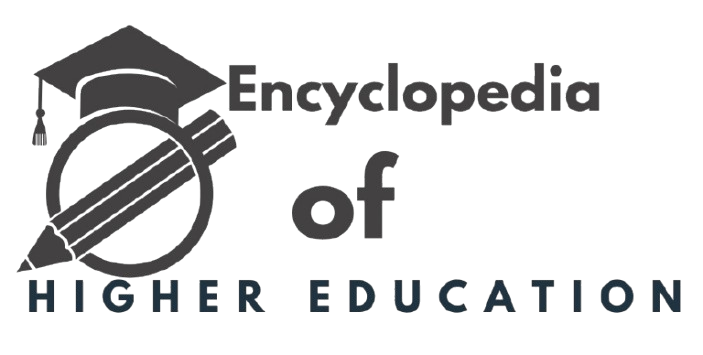Volume 13. Future Trends and Challenges
Overview
This volume maps the rapidly evolving landscape of global higher education by identifying the most pressing trends, technological disruptions, and systemic uncertainties that institutions must confront. It explores paradigm-shifting developments such as alternative credentialing, platform-based universities, brain-computer interfaces, and AI governance, while also addressing complex socio-political threats like corruption, misinformation, and institutional distrust. With contributions ranging from climate-resilient campuses to crisis-proof curricular design and from neuroscience-informed learning to emotional AI, this volume frames the future not as a distant speculation but as an urgent and unfolding reality. The rise of edutainment, hybrid learning ecosystems, and emerging business models challenge long-held assumptions about what education is, how it should be delivered, and who it serves.
Importance and Impact
By anticipating future disruptions and unresolved tensions, this volume provides higher education leaders, researchers, and policymakers with a vital roadmap for institutional adaptability and ethical foresight. It encourages proactive reflection rather than reactive reform, questioning the role of public trust, academic authenticity, and equitable access in an age of automation and decentralization. Moreover, the inclusion of themes such as academic labor precarity, AI ethics, and credential fraud makes this volume especially relevant to both governance and public policy. In bridging technological possibility with human responsibility, this collection serves as a call to action: institutions must reimagine not only how they operate, but why they exist—ensuring relevance, resilience, and integrity in an uncertain future.
Submission Guidelines
Word Count: 5,000 to 6,000 words
Each chapter should be between 5,000 and 6,000 words, including references. This length allows contributors to develop their argument with sufficient depth while remaining accessible to a global readership.
Language: English
All submissions must be written in clear, academic English. Contributors are encouraged to use inclusive language and ensure clarity for an international audience.
Citation Style: APA (7th edition preferred)
Please follow APA Style, 7th edition, for all in-text citations, reference lists, headings, and formatting. Consistency in referencing ensures academic integrity and ease of cross-referencing.
References: At least 80% published after 2021
To ensure the relevance and timeliness of each chapter, at least 80% of cited sources should be published from 2021 onward. This helps maintain the encyclopedia’s credibility and reflects current research and policy discussions.
File Format: Microsoft Word (.docx)
Submissions must be uploaded in Microsoft Word format (.docx only). This format allows for easier editing, formatting, and review throughout the publication process.
Interested in Contributing?
Researchers and authors who wish to participate in the Encyclopedia of Higher Education project are invited to send their abstract, chapter idea, or full submission directly to: kayyali@heranking.com
Alternatively, you may fill out the following form to express your interest and submit your proposal.

Recommended Topics for Contribution
Authors are welcome to explore any of the following themes—or propose their own original focus aligned with the volume’s scope:
1- The Rise of Alternative Credentials
2- Corruption in Higher Education
3- Disruption by Corporate Universities
4- Reimagining the Academic Calendar and Modular Learning
5- Lifelong Learning Ecosystems
6- Gig Economy and the Future of Academic Labor
7- Climate Resilience and Campus Adaptation
8- Neuroscience and Learning Design
9- Student Mental Health in Future Campuses
10- Post-Pandemic Hybrid Education Models
11- Digital Sovereignty and Tech Ethics
12- Education in the Metaverse
13- New University Models: Pop-Up, Platform-Based
14- Credential Verification and AI Proctoring
15- AI Governance and Ethical Pedagogies
16- Future of Public Funding and Tuition Models
17- Rise of Edutainment and Infotainment in HE
18- AI-Generated Content and Academic Authenticity
19- Brain-Computer Interfaces in Learning
20- Autonomous Learning Systems
21- Personalized Degree Pathways
22- Crisis-Proof Curriculum Design
23- Platform Economies and Disruption in Credentialing
24- Public Trust and Misinformation in Academia
25- Future of Physical Campuses
26- Emotion AI and Student Engagement
27- Quantum Computing in Educational Research
28- Geoengineering and the Future of Campus Infrastructure
29- Ethical Use of Student Data in AI Models
30- Institutional Corruption in Accreditation and Funding Allocation
31- Academic Credential Fraud and Diploma Mills
